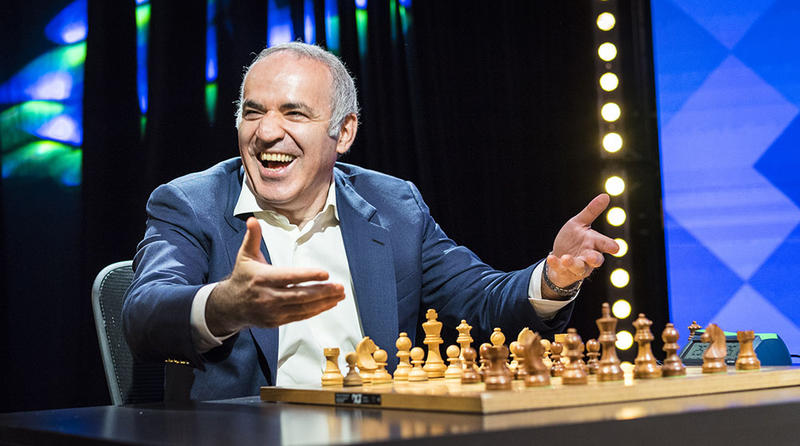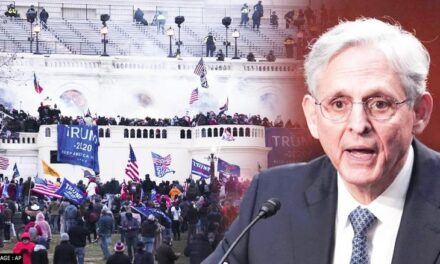Image Credits: LENNART OOTES | GRAND CHESS TOUR.
Teimour Radjabov was 15 years old when he defeated the then-reigning world champion of chess Garry Kasparov. It happened in Linares, Spain in 2003 at one of the most prestigious tournaments in the world. Kasparov had not lost a match at Linares in the prior six years. It had been seven years since he’d lost in any format while using the white pieces. It was one of the greatest upsets of all time.
When Kasparov realized that his position was hopeless, he simply walked out of the building and technically lost the match on time. But the trouble really began at the awards ceremony where the match was awarded the “la más Bella” prize. This was too much for Kasparov’s pride and he lashed out. He went up on the stage and seized the microphone:
“How could you give the beauty prize to a game in which I lost a piece because of a stupid mistake? It has been selected only because it was the only game that I lost and I consider this to be a public insult and humiliation.”
The prize is awarded by a vote of journalists, only some of whom were themselves grandmasters, and Kasparov did not spare them his wrath.
Kasparov then approached a group of journalists, including GM Ian Rogers of Australia and Spanish writer Leontxo Garcia, and asked them who they had voted for and shouted: “This is the greatest insult that you have done to me in my life! It is an insult to me and to chess. You consider yourself chess journalists? If you think that this was the most beautiful game in Linares, you are damaging chess with your reports and articles. Radjabov was completely lost in that game.” Kasparov then stormed out with his mother and trainer.
On the merits, Kasparov had a point. He had blundered away a winning position and there’s nothing particularly beautiful in that. But the lack of graciousness towards a 15 year old kid was shocking and the whole incident remains a blot on his otherwise astoundingly successful career.
Kasparov is now retired from competitive chess and he’s known not only as perhaps the top champion of all time, but also as one of the most prominent critics of Vladimir Putin. He lives in exile in the United States, and often warns that Donald Trump uses many of Putin’s strategies for exercising power. Chief among these is the destruction of any sense of objective truth.
Kasparov and Trump may share traits of vanity and narcissism, but that’s where the similarities end. You can’t become the greatest chess player in the world without having a spectacularly logical and analytical mind, and Trump is more prone to weak conspiracy theories and junk science.
Much is being written about Trump’s lack of empathy, and it’s on display again today as he complains about giving federal assistance to blue states.
President Donald Trump says it would be unfair to Republicans if Congress passes coronavirus “bailouts” for states because he said the states that would benefit from that funding are run by Democrats.
“I think Congress is inclined to do a lot of things but I don’t think they’re inclined to do bailouts. A bailout is different than, you know, reimbursing for the plague,” Trump told the New York Post in a sit-down interviewin the Oval Office on Monday.
The president continued, “It’s not fair to the Republicans because all the states that need help — they’re run by Democrats in every case. Florida is doing phenomenal, Texas is doing phenomenal, the Midwest is, you know, fantastic — very little debt.”
There’s no doubt that Trump’s callousness is a selling point to many of his fans, but it’s not much of a reelection strategy. If he wants a second term, he’s going to have to do a very effective job of precisely what Kasparov has been warning us about. The basic idea is described quite well by NYU professor Jay Rosen:
The plan is to have no plan, to let daily deaths between one and three thousand become a normal thing, and then to create massive confusion about who is responsible— by telling the governors they’re in charge without doing what only the federal government can do, by fighting with the press when it shows up to be briefed, by fixing blame for the virus on China or some other foreign element, and by “flooding the zone with shit,” Steve Bannon’s phrase for overwhelming the system with disinformation, distraction, and denial, which boosts what economists call “search costs” for reliable intelligence.
Stated another way, the plan is to default on public problem solving, and then prevent the public from understanding the consequences of that default. To succeed this will require one of the biggest propaganda and freedom of information fights in U.S. history, the execution of which will, I think, consume the president’s re-election campaign.
Last December, Kasparov wrote a piece for CNN that described things in similar terms:
We enjoyed less than a decade of tenuous freedom in Russia before Vladimir Putin launched its post-democratic phase. My ongoing attempts to fight that tragedy led to my exile in the United States. Now my new home finds itself locked in its own perilous battle — a battle to avoid becoming the latest member of the post-truth world.
President Donald Trump and his Republican defenders in Congress have followed his lead in declaring war on observed reality. Critical reports are “fake news,” journalists reporting the facts are “enemies of the people,” a phrase of Vladimir Lenin’s, debunked conspiracy theories are repeated, and public servants testifying under oath about documented events are dismissed as Never Trumpers.
Unable to change the facts, Trump and his supporters instead try to shift the debate into an alternate universe where the truth is whatever they say it is today. Trump repeats the same lies over and over, and it’s hard to say which is more troubling — that his followers don’t realize that they are lies or that they don’t care.
I admire Kasparov as a chess player as well as for his heroic efforts to stand up for representative government and objective truth. He may not be a gracious loser or the most empathetic man in the world, but he knows gaslighting when he sees it. He also knows danger:
What do you think of comparisons between Trump and Putin?
Their backgrounds are different. Putin is not a public person; he is a K.G.B. agent. He is underhanded in everything he does. Trump acts openly and brazenly. Sure, he has to disguise things, but he does that by piling on lies and fake information. I think Trump envies Putin his ability to do things that Trump can’t do by definition. Putin doesn’t have to be concerned with the media or with parliament. Trump resents wasting his precious time on speaking to the press. And then he has to push things through, lobby for them—all that takes time. I think the way Trump acts around dictators comes from his feelings of a sort of inferiority: he’d like to be like them, but he can’t. If he is reëlected, it will be a tragedy—nothing will rein him in.
I’m inclined to heed the grandmaster’s warning.







